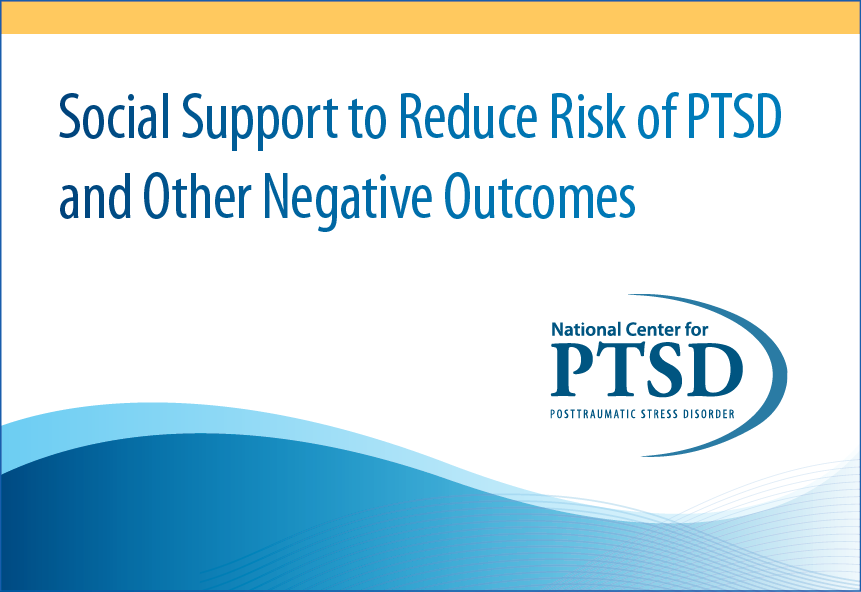PTSD: National Center for PTSD
Social Support to Reduce Risk of PTSD and Other Negative Outcomes
Continuing Education
This section brings together free in-depth Continuing Education resources for the Professional community concerned with trauma.
Social Support to Reduce Risk of PTSD and Other Negative Outcomes
- Date Created: 07/21/2022
- Time to Complete: 1 hour
- Credits: ANCC, APA, ASWB, ACCME, NBCC
- Skill Level: Intermediate
- Course Series: PTSD 101, PTSD Consultation Lecture Series
 Author(s):
Author(s):
Description
PTSD symptoms, such as avoidance, irritability, negative cognitions and hypervigilance, present barriers to developing and maintaining positive relationships. Resulting loneliness and isolation have, in turn, been identified as risk factors for additional negative mental health outcomes, including suicidal ideation. Social support has been shown to mitigate the negative effects of loneliness and isolation. This course reviews relevant research and explores ways that clinicians and health care teams can incorporate effective elements of social support into clinical care for PTSD.
In particular, the author describes the development of a manualized, peer support program—the Women Veterans Network (WoVeN)—designed to target the unique needs of women Veterans. Program evaluation showed significant improvements in PTSD, depression, overall social support, coping self-efficacy, quality of life and other outcomes among those meeting clinical cutoffs for PTSD and/or depression.
Goals and Objectives
- Identify the need for social support of Veterans suffering from PTSD
- Describe the rationale for development of a national social support network designed to meet the unique needs of women Veterans
- Discuss ways in which clinicians can target relationship impairments through strategies to increase Veteran social support
- Identify the need for social support of Veterans suffering from PTSD
- Describe the rationale for development of a national social support network designed to meet the unique needs of women Veterans
- Discuss ways in which clinicians can target relationship impairments through strategies to increase Veteran social support


























